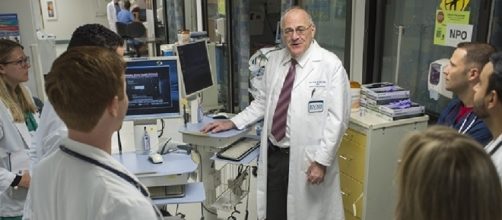Sepsis is the name given to the overwhelming systemic complication following serious infections. In the U.S. it kills an estimated quarter million people each year and is the leading cause of death in hospitalized patients. Around the world, millions die of sepsis every year.
Sepsis
Blood poisoning or Sepsis is a result of the body’s own immune system’s reaction to infections and is often the actual cause of death as it destroys the body’s organs. Until recently the only way to fight Sepsis was to find the underlying infection and treat it. Unfortunately, that often doesn’t work.
In fact, in about 40 percent of cases, it takes too long to determine the kind of infection and fight it with antibiotics so in 4 of 10 cases diagnosed with Sepsis the patient dies. Sixty percent in less developed countries.
Around the world, it is estimated that up to 8 million people die of sepsis each year often because antibiotics aren’t even available, nor is the laboratory to test for infections. But Dr. Paul Marik of the Eastern Virginia Medical School gave a terminal patient intravenous Vitamin C and steroids, knowing neither could harm her. He also knew she would die within a few days.
Instead, two days later she left the Intensive Care Unit (ICU) and became the first of many of Dr.
Marik’s patients to survive sepsis. In fact, instead of one death per week on average from sepsis, no patient at that medical school has died of sepsis since.
For a disease which routinely kills 40 percent of those who develop it that is a remarkable record so after one year following this protocol and continually seeing patients who previously would be considered terminal walk out of the hospital, Dr. Marik has published his results.
The full protocol now includes thiamine (B1) because that helps the body absorb Vitamin C.
Best news yet almost anyone can afford this
But the most important part of this discovery isn't just that it is a universal cure for sepsis, it doesn't require any testing or identification of the underlying infection which can be determined leisurely and treated without the threat of imminent death from sepsis.The other vitally important part of this discovery is that, unlike an earlier sepsis treatment which wasn't quite as effective, this one doesn't require any expensive drugs.
The other vitally important part of Dr. Marik's discovery is that, unlike an earlier sepsis treatment which wasn't quite as effective, this one doesn't require any expensive drugs, just medicine which even third-world hospitals and clinics should be able to afford.
Vitamin C is sold in bulk by the kilogram, and it can be mixed by any pharmacy in any country and added to sterile water for the IV. Hydrocortisone is more expensive but is a common drug.
Thiamine is an inexpensive vitamin also known as Vitamin B1.

